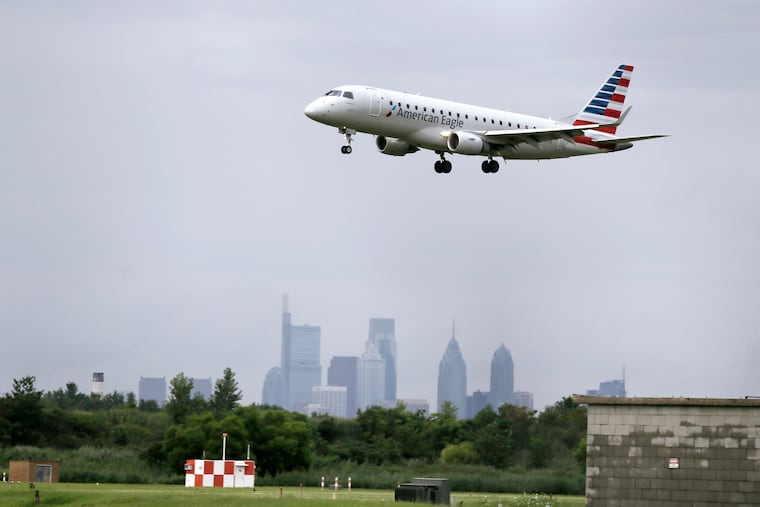Measles exposure possible at Philadelphia airport, health officials warn
A person with a suspected case of measles visited the Philadelphia airport last week and “may have exposed many individuals,” health officials said.

Anyone who visited certain areas of Philadelphia International Airport on Oct. 2 or 3 may have been exposed to measles, health officials warned Friday.
According to a release from the Pennsylvania Department of Health, travelers passing through the following terminals may have been subjected to the highly contagious disease:
Oct. 2: Terminal F from 6:30 p.m. to midnight.
Oct. 3: Terminal F from 4 p.m. to midnight.
Oct. 3: Terminal A from 8:30 to 11:30 p.m.
Oct. 3: Terminal A/B shuttle bus from 8:30 to 11:30 p.m.
A person with a suspected case of measles visited the airport and “may have exposed many individuals,” Pennsylvania Secretary of Health Rachel Levine said in a statement.
“The Department of Health is working with the county and municipal health departments to notify Pennsylvanians who were on flights with the suspected case, but other individuals may have been exposed at the airport during the identified times," Levine said. “However, if you have been properly immunized against measles, your risk of getting the disease is minimal."
Highly contagious but vaccine-preventable, measles spreads through coughing, sneezing, or other contact with mucus or saliva of an infected person, the Health Department said. Symptoms of the disease typically appear between one and three weeks after exposure and can include a rash, high fever, cough, and red, watery eyes.
Infants too young to receive the MMR (measles-mumps-rubella) inoculation and adults who have not been vaccinated or only received one dose of the two-dose vaccine are at the greatest risk of contracting the disease.
While most of those who are infected recover, some go on to develop pneumonia and brain swelling. There are about one or two deaths per 1,000 people affected, according to experts.
The disease was declared officially eliminated in the United States in 2000. But this year, the U.S. is dealing with its worst measles outbreak since 1992, with the Centers for Disease Control and Prevention reporting more than 1,200 cases confirmed in 31 states. The includes 15 cases in Pennsylvania, as of Friday; and 19 cases in New Jersey, as of Oct. 3.
If you believe you may have been exposed to measles and experience symptoms, the Health Department advises contacting your health-care provider or calling its toll-free hotline: 1-877-PA-HEALTH.